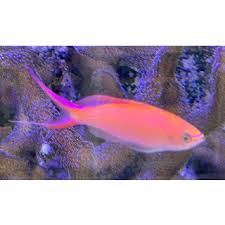Dragons in Mountain and River Deity Worship Ceremonies in China

Dragons have held an enduring and powerful symbolism throughout Chinese culture for thousands of years. Revered as mystical creatures embodying power, wisdom, and fertility, they are prominently featured in various spiritual and religious practices, especially in the worship of deities associated with nature. Among these, the mountain and river gods are some of the most significant figures in Chinese religious traditions, and the dragon plays a central role in ceremonies dedicated to these gods. This article delves into the symbolic connection between dragons and mountain and river deity worship in China, exploring the history, rituals, and deeper meanings behind these spiritual practices.
Dragons and Their Role in Chinese Culture
In traditional Chinese belief systems, the dragon is considered a symbol of imperial authority, strength, and divine protection. Unlike the fearsome creatures in Western mythology, Chinese dragons are generally viewed as benevolent and auspicious beings associated with water, fertility, and life. The dragon’s importance in Chinese culture is reflected in its frequent appearance in art, literature, architecture, and religious practices. Most notably, it is linked with the forces of nature—specifically water, rain, and storms—thus making it an essential symbol in the worship of mountain and river deities.
The dragon’s connection with water is particularly notable in the context of the Chinese landscape. Water plays a crucial role in agricultural success, and ancient Chinese society depended heavily on the regular flooding of rivers for irrigation. As such, river gods were worshipped to ensure that water would flow in abundance, bringing prosperity and fertility. The dragon, as a water deity, was believed to control the movement of rivers and the weather, making it an integral part of ceremonies devoted to these forces.
Mountain Gods and Dragon Symbolism
Mountains have held a special place in Chinese spirituality, regarded as sacred places where heaven and earth meet. The worship of mountain deities dates back to ancient times, and mountains were often seen as the home of gods and ancestors. These deities were believed to govern the balance of nature, and ceremonies honoring them sought to maintain harmony between humans and the natural world.
Dragons, in many cases, are closely associated with these mountain gods. One of the most significant and widely recognized mountain deities in Chinese culture is the Mountain God (Shan Di), who is believed to govern the natural world and the fertility of the land. The dragon’s presence in mountain worship represents the connection between the earth and the sky, as the dragon is believed to control the flow of rivers and rainfall, vital elements in maintaining the balance of nature. By invoking the dragon during mountain deity worship, the practitioners sought to ensure favorable weather conditions for agricultural success.
In some traditions, the dragon is depicted as living within or around mountains, symbolizing the relationship between the land’s fertility and the power of natural forces. In these rituals, the dragon is often represented through symbolic imagery such as dragon-shaped incense burners, dragon carvings, and ceremonial attire. This imagery highlights the dragon’s role as a messenger between the human world and the divine, acting as a bridge between the earthly realm and the heavenly powers that control the forces of nature.
River Gods and the Dragon’s Influence
Rivers have always been vital to Chinese civilization, not only for practical purposes such as irrigation and transportation but also for their symbolic significance in religious practices. River gods were worshipped to ensure the safety of waterways and prevent disasters such as floods or droughts. In these rituals, the dragon plays an essential role, as it is believed to be the master of water, controlling the rivers and rainfall that nourish the land.
One of the most well-known river gods in Chinese mythology is the Dragon King (Long Wang), who rules over the Four Seas—an ancient belief system that divides the seas into four regions, each governed by a different Dragon King. The Dragon King is a central figure in Chinese folklore, revered as a deity who controls the flow of rivers and the weather. The dragon, as the Dragon King’s physical manifestation, symbolizes both the nurturing and destructive power of water. During river god worship ceremonies, the dragon is invoked to maintain balance in the waters and ensure the prosperity of the land.
Rituals honoring the Dragon King often take place at riverbanks or near bodies of water, where worshippers offer incense, food, and other tributes to appease the deity. These offerings are made with the belief that the Dragon King will bestow good fortune, bring rain to the crops, and protect the people from flooding. The dragon’s image is often featured prominently in these ceremonies, emphasizing its role as the protector and ruler of water.
One notable ceremony that highlights the dragon’s role in river worship is the Dragon Boat Festival (Duan Wu Jie), which is celebrated annually in China. The festival honors the ancient poet Qu Yuan, but it also pays tribute to the Dragon King and the river gods. Dragon boats, which are traditionally decorated with dragon imagery, race along rivers in a symbolic effort to invoke the blessings of the river gods. This ceremony showcases the deep connection between the dragon, the river, and the community’s relationship with nature’s forces.
Rituals and Ceremonies Involving Dragons and Mountain-River Deities
The rituals dedicated to mountain and river deities in China vary by region and belief system but share a common reverence for the role of the dragon as an intermediary between humans and the divine forces of nature. These ceremonies often involve elaborate processes of purification, offerings, prayers, and sacrifices, with the dragon’s image playing a central role in the proceedings.
Mountain Rituals and Dragon Symbolism
Mountain deity ceremonies are typically held in temples or shrines located at the foot or summit of sacred mountains. The rituals usually begin with the preparation of offerings such as fruits, incense, and symbolic items, which are presented to the mountain god to gain favor and protection. In some cases, the dragon is invoked during these rituals to symbolize the cosmic energy that flows through the mountains and into the land.
A key element of these ceremonies is the belief that the dragon, as a guardian of the natural world, can help to channel divine power into the land. As worshippers make their offerings, they often chant prayers and invoke the presence of the dragon to ensure prosperity and balance in the natural world. In this way, the dragon represents the harmony between heaven and earth, linking the human world with the divine forces that govern the elements.
River Rituals and Dragon Worship
River rituals, on the other hand, focus on invoking the Dragon King and other river gods to ensure the safety and fertility of the waterways. These ceremonies often take place during the spring and summer months, when the river is most crucial for agriculture. During these rituals, participants may gather at riversides or on boats decorated with dragon imagery, singing traditional songs, and making offerings to the river gods.
The Dragon Boat Festival is the most well-known example of such a ceremony, where dragon-shaped boats race to honor the river gods. This event includes the performance of rituals, such as placing offerings in the water, reciting prayers, and engaging in communal feasts, all of which seek to strengthen the relationship between the human community and the river gods. The dragon’s role here is twofold: it is a protector of the rivers and a symbol of the power of water to bring life and prosperity.
The Dragon’s Connection to Agriculture and Prosperity
The worship of dragons in the context of mountain and river deities is intrinsically linked to the agricultural life of the Chinese people. Agriculture has always been central to Chinese society, and the regular flooding of rivers was essential for ensuring fertile soil and abundant crops. The dragon, as a water deity, was believed to regulate rainfall and river flow, and by worshipping the dragon, people sought to ensure that the cycles of nature were in balance.
The connection between the dragon and agriculture is particularly evident during the Dragon Boat Festival, which coincides with the planting season. It is believed that by honoring the river gods and the dragon during this time, people could ensure a successful harvest and avoid natural disasters. The dragon, as the master of water, symbolizes the link between the natural world and human prosperity, reinforcing the belief that the earth’s fertility is directly influenced by the powers of the divine.
Conclusion
Dragons play a crucial role in the worship of mountain and river deities in China, serving as symbols of the vital forces of nature that sustain life on earth. These majestic creatures embody the power of water, the fertility of the land, and the wisdom of the natural world. Through ceremonies dedicated to these deities, the dragon represents the intermediary between humanity and the divine, guiding the flow of water and ensuring the prosperity of the land.
The rituals honoring the dragon and the mountain and river gods are a testament to the deep respect for nature that has long been central to Chinese culture. These ceremonies highlight the belief that human well-being is closely connected to the balance of the natural world and that the power of the dragon can help ensure harmony and prosperity for generations to come. As China continues to honor its ancient traditions, the dragon remains a vital symbol of the country’s spiritual and cultural heritage, embodying both the power of nature and the wisdom necessary to live in harmony with it.

